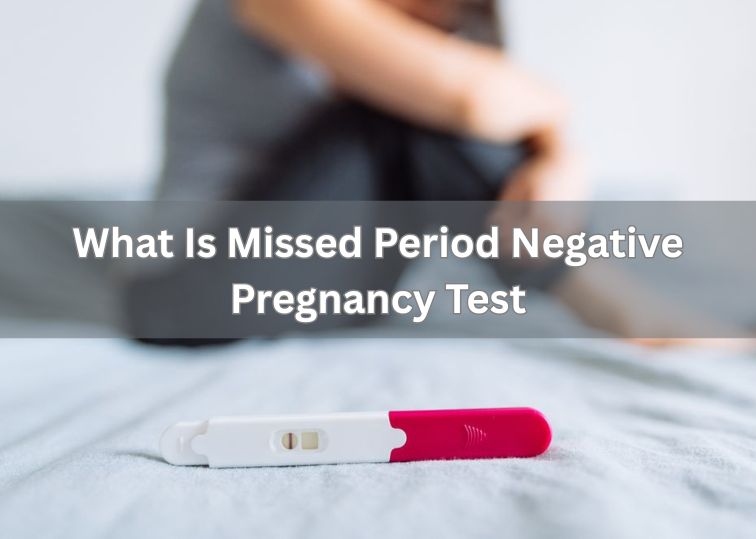In modern society, many women are choosing to start their families later in life. Improved career opportunities, financial independence, advances in fertility treatments, and changing social norms have contributed to a steady rise in pregnancies among women aged 40 and older. Though pregnancy after 40 has higher risks than among younger women, medical advances now make it much safer than ever. With proper care, planning, family support and medical help, many women over 40 can have healthy pregnancies and deliver healthy babies.
Changing Fertility Patterns and Why More People Conceive Later
The social, economic, and personal factors combine as reasons for the sharp rise in pregnancies over 40. It can be related to careers, financial readiness, personal growth, and finding the right partner, among many other factors. As these changes have occurred, health systems have also moved to better support pregnancies at older ages.
Biologically, fertility naturally declines with age. Individuals are born with a finite number of eggs; both the quantity and the quality of those eggs decline over time through the 30s, and more quickly after 37. By a person’s early 40s, the possibility of conceiving each month is reduced. Many will still conceive easily enough without assistance, but others will need fertility support, such as medications, intrauterine insemination, or in vitro fertilization. Donor eggs are also a successful option for some.
Benefits of Pregnancy After 40
There are also significant benefits associated with having a baby after 40.
- Emotional maturity: Older mothers are often more emotionally stable and confident in handling parenthood.
- Financial stability: Many women at this age have established careers and better financial resources to support a child.
- Strong relationships: Couples who have spent more time together may share a deeper bond and make more informed parenting decisions.
- Appreciation of motherhood: After years of waiting or struggling with fertility, many women feel especially grateful and committed to their pregnancy journey.
Higher Chance of Certain Risks
For mother
1.Miscarriage: As egg quality declines, the risk of chromosomal abnormalities rises, which increases the chances of miscarriage.
2.Gestational Diabetes: Higher maternal age is associated with insulin resistance, making gestational diabetes more common.
3.Cesarean Delivery: The chance of needing a cesarean section is higher, partly due to age-related factors and other medical conditions.The chance of needing a cesarean section is higher, partly due to age-related factors and other medical conditions.
4.Pregnancy Complications
Older mothers are at higher risk for several pregnancy-related conditions:
- High blood pressure and preeclampsia
- Gestational diabetes
- Placenta previa or placental abruption
- Preterm birth
- Low birth weight
- Maternal Health Concerns
Pregnancy places extra demands on the heart, kidneys, and metabolism. For women over 40, particularly those with underlying conditions, this can increase risks of complications like heart disease or blood clots. Pre-pregnancy health optimization is therefore essential.
For the Baby
- Chromosomal Abnormalities: The likelihood of conditions such as Down syndrome increases with maternal age.
- Preterm Birth: Babies born to parents over 40 have a higher chance of being born early.
- Low Birth Weight: Some pregnancies experience restricted fetal growth, leading to smaller babies.
- NICU Admission: Babies may require additional support after birth, though many do very well.
It’s important to remember that increased risk does not mean inevitable problems. With early monitoring and appropriate medical support, many of these risks can be managed effectively.
Preconception and Prenatal Care
Proper planning and medical guidance can greatly improve outcomes for women over 40.
a. Preconception Checkup
Before trying to conceive, women should visit a healthcare provider to:
- Review overall health and manage chronic conditions.
- Check blood pressure, blood sugar, and thyroid function.
- Begin taking prenatal vitamins with folic acid (400–800 mcg daily) to prevent neural tube defects.
- Discuss medication safety during pregnancy.
- Maintain a healthy weight and balanced diet.
If conception has not occurred after six months of trying, fertility evaluation is recommended.
b. Healthy Lifestyle
- Diet: Eat nutrient-rich foods, including fruits, vegetables, lean proteins, and whole grains.
- Exercise: Regular moderate activity helps improve circulation, weight control, and mood.
- Avoid: Smoking, alcohol, and illicit drugs — all of which reduce fertility and increase complications.
- Manage stress: Through relaxation, yoga, meditation, or counseling.
c. Prenatal Monitoring
Once pregnant, older mothers need more frequent prenatal visits and monitoring:
- Early ultrasound to confirm pregnancy location and viability.
- Screening for chromosomal abnormalities as mentioned above.
- Monitoring for gestational diabetes and preeclampsia through regular blood pressure and urine checks.
- Fetal growth scans to ensure healthy development.
A multidisciplinary approach involving obstetricians, genetic counselors, and nutritionists can help optimize care.
d. Pregnancy Spirituality
Pregnancy spirituality offers a sense of inner peace, emotional stability, and connection with the unborn baby. Meditation, prayers of gratitude, and proper breathing techniques can all help lower levels of stress and create a positive atmosphere for both mother and child. Trust in the natural wisdom of the body fosters calmness and supports a nurturing, connected, and balanced pregnancy.So be connect with spirituality.
Managing Common Pregnancy Challenges
a. Fatigue and Energy Levels
Older mothers often experience more fatigue. Adequate rest, proper nutrition, and light exercise can help maintain energy levels.
b. Weight Gain and Physical Strain
Weight gain should be gradual and controlled — typically 11–16 kg (25–35 lbs) for women of normal weight. Supportive pillows and gentle prenatal exercises can reduce back pain and strain.
c. Emotional Health
Anxiety about complications or fertility can take a toll. Emotional support from family, partners, or professional counselors is valuable. Many women find comfort in joining prenatal classes or online support groups for older mothers.
Delivery and Postpartum Considerations
Expecting mothers aged 40 and above deliver via c-section more often, medically indicated or not, due to complications that arise during labor. However, quite a number of women within this age group still manage to deliver vaginally, provided they are put under close monitoring. Recovery after childbirth is often a longer process due to the changing age factors in metabolism and healing. The need for rest, childcare assistance, and regular exercise is highly required. Recovery also needs frequent checkups. The ability to breastfeed is more than encouraged; even with milk supply coming in a bit slower, many can be supported and guided to breastfeed successfully.
Emotional and Social Dimensions
Being a mom at 40 can be rewarding but also demanding. Many women are subject to the pressure of society or judged; however, others are energized by their choice. The emotional readiness of women plays an important part in this-parents who are older are often able to provide patience, experiences, and stability that will benefit their children’s development. Long-term support for your family and health maintenance is important, as parents of older ages will need more energy and vitality.
Long-Term Outlook
Research has proved that although the risk is greater, through good prenatal care women over 40 can have healthy babies. These days the rates of success have dramatically improved due to improvements in obstetric monitor methods as well as genetic testing and fertility treatments. Regular follow-up, balanced diet as well as exercise as well as adherence to medical guidance make a lot of difference. If properly managed, advanced maternal age does not affect women from having an uncomplicated pregnancy and a healthy motherhood.
Fertility Options and Assisted Reproduction
Fertility options and assisted reproduction help individuals or couples conceive when natural pregnancy is difficult. Options include ovulation-inducing medicines, hormonal treatments, and corrective surgeries. Assisted reproduction techniques like IUI, IVF, ICSI, donor eggs or sperm, and surrogacy offer advanced support to improve the chances of a successful pregnancy.
Conclusion
In the final analysis, advanced age should not be a reason to forgo a baby, but a factor that dictates a well-informed approach to treatment and preparation. With hope and professional support, coupled with an enlightened way of maintaining balance in life, having a child over 40 can be very fulfilling and enjoyable. Pregnancy over 40 is common and attainable; it carries specific medical considerations, but more than ever, modern medicine and watchful prenatal care have made later-life pregnancy safer. With good health practices, informed decision-making, and supportive care, many people over 40 go on to have healthy pregnancies and babies that thrive. Understanding the realities-both the challenges and the advantages-allows individuals to embrace the journey with confidence and optimism.



